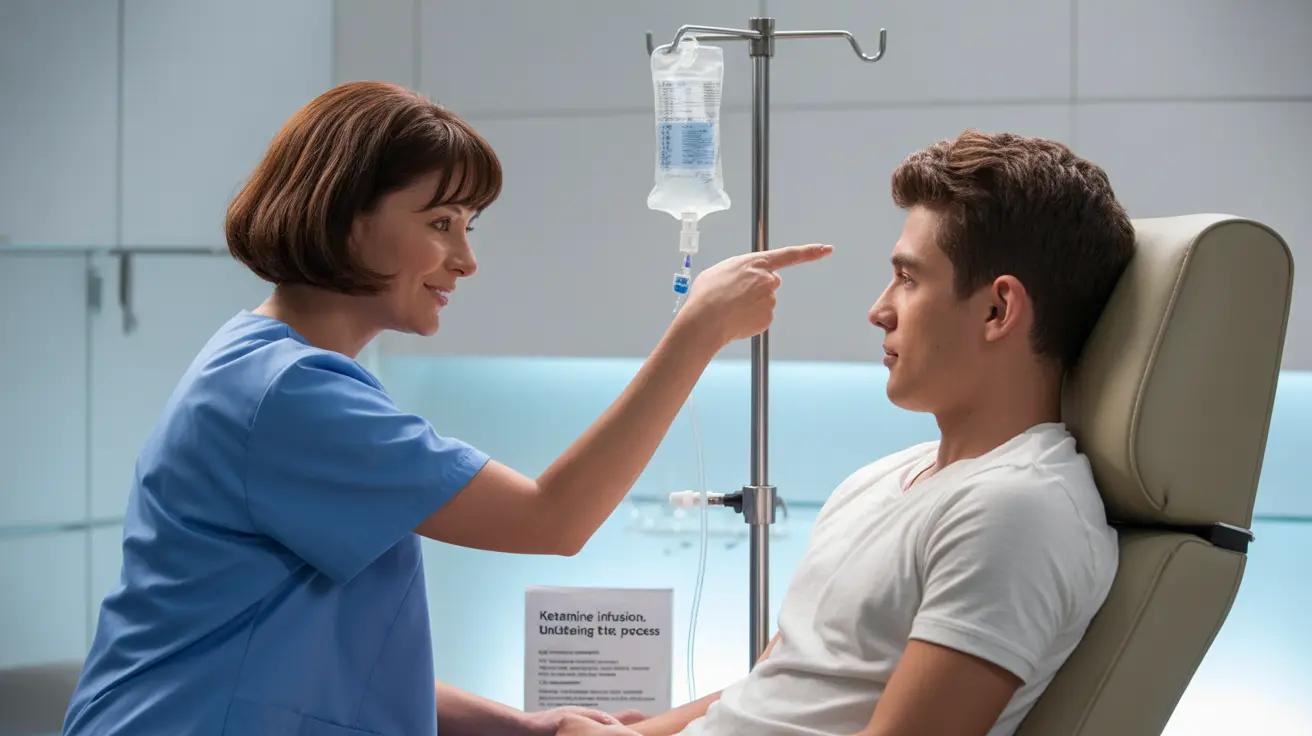As more people seek effective treatments for depression, ketamine therapy has emerged as a promising option for those who haven't responded well to traditional antidepressants. However, given ketamine's history as a recreational drug, many patients and healthcare providers have valid concerns about its addiction potential when used for depression treatment.
This comprehensive guide explores the safety profile of medical ketamine, its addiction risks in clinical settings, and what patients should know about this innovative depression treatment.
How Ketamine Works as a Depression Treatment
Ketamine operates differently from conventional antidepressants by targeting the NMDA receptor in the brain. This unique mechanism of action can provide rapid relief from depressive symptoms, often within hours or days, compared to the weeks traditional antidepressants typically require.
When administered in a clinical setting, ketamine is given at precisely controlled doses that are significantly lower than those used recreationally, helping to minimize risks while maximizing therapeutic benefits.
Addiction Risk in Clinical Settings
In medical settings, ketamine treatment for depression follows strict protocols designed to prevent addiction. Sessions are carefully monitored, scheduled at appropriate intervals, and administered by trained healthcare professionals. This controlled environment significantly reduces the risk of developing dependence.
Key Safety Measures in Medical Settings
- Controlled dosing and administration
- Regular monitoring of patient response
- Structured treatment schedules
- Comprehensive mental health evaluation before treatment
- Ongoing assessment for signs of dependence
Understanding Side Effects and Safety
While ketamine therapy can be effective for depression, patients should be aware of potential side effects. Most side effects are temporary and occur during or shortly after treatment sessions.
Common Short-Term Effects
- Dissociation or feeling disconnected
- Mild changes in perception
- Temporary increase in blood pressure
- Dizziness or nausea
- Feeling sleepy or groggy
Long-Term Considerations and Monitoring
Healthcare providers carefully track patients' responses to ketamine treatment over time. This monitoring helps ensure the treatment remains effective while watching for any signs of tolerance or dependence.
Regular assessments help determine the optimal treatment frequency and duration, with adjustments made based on individual patient needs and responses.
Frequently Asked Questions
Is ketamine addictive when used under medical supervision for depression treatment?
When used as prescribed in medical settings, ketamine therapy has a low risk of addiction. The controlled environment, precise dosing, and professional monitoring significantly reduce addiction potential compared to recreational use.
What are the risks of ketamine misuse or addiction outside of clinical settings?
Outside of medical supervision, ketamine can be highly addictive and dangerous. Recreational use often involves much higher doses and frequent administration, which can lead to physical dependence, cognitive problems, and severe health complications.
What common side effects should I expect during ketamine therapy for depression?
Common side effects during treatment may include temporary dissociation, mild perceptual changes, dizziness, and slight increases in blood pressure. These effects typically resolve shortly after each session.
How does ketamine help with treatment-resistant depression and suicidal thoughts?
Ketamine works rapidly to reduce depressive symptoms by promoting new neural connections in the brain. This quick action can provide relief from severe depression and suicidal thoughts when other treatments haven't been effective.
Are there long-term safety concerns or risks of tolerance with repeated ketamine use for depression?
While long-term studies are ongoing, current evidence suggests that when properly administered in medical settings, ketamine therapy maintains its effectiveness without significant tolerance development. Regular monitoring helps identify and address any potential safety concerns.




